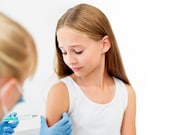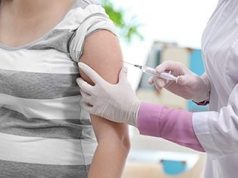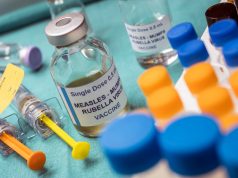Physicians not strongly recommending vaccine, not using presumptive style linked to refusal or deferral
MONDAY, Sept. 16, 2019 (HealthDay News) — There are areas for improvement for pediatricians and family physicians (FPs) in recommendation and delivery methods for the human papillomavirus (HPV) vaccine, according to a study published online Sept. 16 in Pediatrics.
Allison Kempe, M.D., M.P.H., from the University of Colorado in Aurora, and colleagues surveyed nationally representative networks of pediatricians and FPs to examine HPV vaccine delivery practices, delivery experiences, and attitudes regarding new two-dose HPV vaccination schedules.
The researchers observed variation in the proportion of pediatricians who strongly recommended the HPV vaccine, from 99 percent for female patients ≥15 years to 83 percent for 11- to 12-year-old male patients; among FPs, there was variation from 90 to 66 percent, respectively. When discussing the HPV vaccine, 65 and 42 percent of pediatricians and FPs, respectively, always or almost always used the presumptive style. The proportion of pediatricians reporting a refusal or deferral rate ≥50 percent was 19 and 23 percent for female and male patients aged 11 to 12 years, respectively; FPs reported rates of 27 and 36 percent, respectively. Factors associated with refusal or deferral included physicians not strongly recommending the vaccine to 11- to 12-year-olds, not using a presumptive style, and anticipating an uncomfortable conversation when recommending the vaccine.
“Increased use of available communication training materials and applications as well as further development of evidence-based messages for parents may be helpful in improving the way HPV vaccination is introduced,” the authors write.
Abstract/Full Text (subscription or payment may be required)
Copyright © 2019 HealthDay. All rights reserved.








